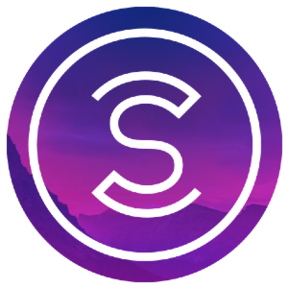Additional Perks offered
Free Consultation
Unlimited Agile Free Resources
LinkedIn Resume & Revamp
Agile Community Support
100% Job Guarantee✅
Lifetime Agile Certificates
Register
Additional Perks offered
Free Consultation
Unlimited Agile Free Resources
LinkedIn Resume & Revamp
Agile Community Support
100% Job Guarantee✅
Lifetime Agile Certificates

Our platform provides comprehensive training and support for Organizations, Scrum Masters, Product Owners ,SME's, Entrepreneurs, Career Transitioners, College Students, Tech Startups and Newbies in Tech so you can confidently manage projects and develop an Agile Mindset 🧠.
Eligibility
We provide Industry-Recognized Certifications to our students and partners with no specific eligibility requirements needed for attending the course.
What we Offer
Consultancy
We offer consultancy services in the Tech career spaces for:-
a)College Students
b)Graduates
c)Career Transitioners
Hands-On Experience
Gain hands-on experience through practical exercises and real-world case studies, allowing you to apply your newfound knowledge with confidence.
Get the support you need.
Connect with a vibrant community of like-minded scrum and product owner enthusiasts, where you can engage in discussions, share knowledge, and learn from each other's experiences.
Personalized Coaching.
Benefit from personalized coaching sessions with experienced Scrum Masters and Product Owners who will provide guidance, feedback, and valuable insights to help you excel in your role.
Mock Sprints and Exercises.
Sharpen your skills and gain hands-on experience with our interactive mock sprints and practical exercises. 🏃♀️🏋️♂️ Boost your confidence in running successful sprints and handling real-world scenarios.
Exclusive Resources.
Gain access to exclusive resources, cheat sheets, templates, and tools that will streamline your scrum processes and make your life as a Scrum Master or Product Owner easier.
Elancerlab mission is helping organizations and Individuals realize maximum value on their investments by leveraging agility, focus, visibility, continuous improvement, and collaboration for product development. Elancerlab has experience with large, small teams, Individuals and enterprises in the Aerospace, Defense, Education, Energy, Entertainment, Finance, Insurance, Life Sciences, Retail, Software, Telecommunications, and Trading sectors. Their expertise guides enterprise transformations and the implementation of Lean and Agile values and principles.
I enrolled in eLancerLab Master class which was very informative, thorough, and engaging. I was fortunate enough to get in class detailed training as well as scenerios that would prepare me for taking the Scrum Masters Exam and becoming a Professional Scrum Master. I was able to pass my exam thanks to the leadership.

I can't believe how much i've learned in the past 4 weeks! This program has not only made me a Certified Scrum Master but also equipped me with practical knowledge that I could immediately apply at work.Thanks Elancerlab !
The Product Owner and Scrum Master program was a game-changer for me!The interactive sessions and real-world examples made everything so clear.It's more than just a certification program,it's truly about developing an Agile Mindset and understanding the methodologies.
Never knew learning Scrum could be so engaging and fun!Elancerlab cohort-based approach had us learning together.Got my certification and a lifetime learning!
Agile software development refers to software development methodologies centered round the idea of iterative development, where requirements and solutions evolve through collaboration between self-organizing cross-functional teams. The ultimate value in Agile development is that it enables teams to deliver value faster, with greater quality, predictability, and greater aptitude to respond to change.
Agile software development is a type of project management process that is primarily utilized in the field of software development. This approach to software development revolves around the concept that demands and solutions evolve through the collaborative effort of self-organizing and cross-functional teams, including their customers and end users.
These teams are typically composed of members with diverse skills and knowledge bases, enabling a more comprehensive view of the project at hand. This inherently multi-disciplinary approach facilitates a broader problem-solving perspective and encourages a more synergistic workflow.
A key feature of Agile software development is its receptiveness to change. Unlike more traditional, rigid strategies, Agile methods are flexible, accommodating modifications to previously laid plans based on new information or changing circumstances. This adaptability is critical in the rapidly evolving field of software development, where customer needs and market trends can shift unpredictably.
In addition, Agile software development places a strong emphasis on evolutionary development. Rather than trying to deliver a perfect product in one go, Agile methods encourage gradual improvement. Early versions of software are released and then continually enhanced based on feedback and testing. This iterative process allows for the early detection of issues and facilitates their timely resolution.
Moreover, Agile fosters a culture of continuous improvement. Teams are encouraged to regularly reflect on their performance and seek ways to enhance their effectiveness. This leads to a cycle of constant development and refinement, which ultimately drives the delivery of high-quality software that meets the users' needs and expectations.
Agile methodology is a term used to describe a set of principles for software development under which requirements and solutions evolve through the collaborative effort of self-organizing and cross-functional teams. These principles are rooted in adaptive planning, early delivery, and continuous improvement, with an emphasis on flexibility and rapid response to change.

The Agile mindset can be applied to other industries beyond software development. Its principles of flexibility, iterative progress, continuous improvement, and collaboration can benefit many fields. These may include project management, marketing, event planning, manufacturing, and more. The focus on customer needs and adaptive planning can enhance efficiency and effectiveness in various contexts.
Agile development is not only a methodology but also a mindset that promotes a new way of managing and performing software development. It places great importance on the role of feedback in all stages of the project, enabling teams to continuously improve their processes, the product, and their own performance. The ultimate goal of Agile development is to provide a framework where teams can maintain their focus on rapidly delivering working software while also being equipped to respond effectively to changing requirements.Agile certification is particularly important for small businesses because it:
Enhances Flexibility and Adaptability: Agile methodologies allow businesses to quickly adapt to changes in the market or customer requirements.
Improves Team Collaboration: Agile emphasizes cross-functional teams and collaborative efforts, which can lead to more innovative solutions and better problem-solving.
Focuses on Continuous Improvement: The iterative process in Agile encourages regular feedback and refinement, leading to higher quality outcomes.
Speeds Up Time to Market: Agile practices can shorten development cycles, enabling faster delivery of products or services.
E-lancerlab is a premier Career Workplace Education based in Dallas, TX
Yes, Agile certification is highly regarded in the industry and can significantly improve your job prospects. It demonstrates your commitment to continuous learning and your ability to implement Agile practices effectively, making you a valuable asset to any organization.
The costs vary depending on the certification program and format (online or in-person). Detailed pricing information is available on our website. We also offer group discounts and flexible payment plans to make our programs accessible to everyone.
Absolutely! We offer customized Agile training programs tailored to meet the specific needs of your organization. Whether you’re looking to train a small team or an entire department, we can develop a program that aligns with your business goals and industry requirements.
Yes, we offer both online and in-person Agile certification courses. Our online courses provide the same comprehensive training and interactive experience as our in-person sessions, allowing you to learn at your own pace from the comfort of your home or office.
The duration varies depending on the certification program. Most certifications can be completed within a few weeks, but the exact timeframe will depend on the specific course and your availability. Our flexible training schedules are designed to accommodate busy professionals.
Choosing the right Agile certification depends on your career goals and current role. For those new to Agile, a Scrum Master Certification is a great starting point. If you’re involved in managing product backlogs, a Product Owner Certification may be more suitable. Our team can provide personalized recommendations based on your experience and aspirations.
Agile certification is beneficial for project managers, team leaders, software developers, business analysts, and anyone involved in product development or project management. Organizations looking to adopt Agile practices can also benefit by ensuring their teams have the necessary skills and knowledge.
We offer a range of Agile certifications, including Scrum Master Certification, Product Owner Certification, and SAFe 6.0 Agile certifications. Each program is designed to cater to different roles and levels of experience within Agile teams.
Obtaining an Agile certification can enhance your career prospects by showcasing your expertise in Agile practices. It can open doors to new job opportunities, help you stand out to employers, and increase your earning potential. For businesses, Agile certification ensures that teams are well-equipped to implement Agile methodologies, leading to more efficient project management and better product delivery.
Agile certification is a professional credential that demonstrates your understanding and proficiency in Agile methodologies and practices. It validates your skills in applying Agile principles to improve project management, team collaboration, and product development.
Small businesses aiming to improve efficiency should consider certifications that enhance project management, operational processes, and team collaboration. Some of the most valuable certifications offered by E-lancerlab include:
Agile Certification: Agile methodologies are essential for improving project management and adaptability. Agile certification helps teams to be more flexible, responsive to change, and focused on continuous improvement.
Scrum Master Certification: This certification is crucial for those managing Agile projects. It equips individuals with the skills to facilitate effective teamwork, manage sprints, and ensure projects are completed successfully